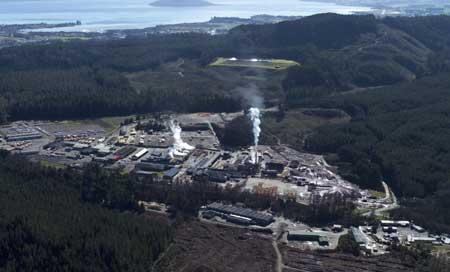| Saving energy is not just about social responsibility. It is also a powerful tool to contain costs, as many New Zealand companies have found out. Jenny Baker reports. The Government recently released its New Zealand Energy Efficiency and Conservation Strategy 2011 to 2016. In launching the strategy, Acting Minister of Energy and Resources Hekia Parata said it promoted practical actions to encourage energy consumers to make wise decisions. “Energy efficiency and conservation have an important role to play in economic growth and meeting our energy challenges,” she said. The strategy’s objective for the business sector is “…enhanced business growth and competitiveness” through improved energy intensity - expressed as gigajoules (GJ) per $1,000 of GDP. The Energy Efficiency and Conservation Authority is one of the key agencies with the role of delivering the Government’s strategy. EECA’s remit is to “encourage, support and promote energy efficiency, energy conservation, and the use of renewable sources of energy at home and in businesses”. Its objective is to maximise cost-effective energy savings and the associated benefits for all New Zealanders. EECA estimates that most businesses could save up to 20% of their energy costs. “Managing energy better brings savings that go straight to the bottom line, helping improve productivity and competitiveness, and positioning businesses well for growth,” says EECA Industrial Programmes Manager Rod Treder. “Alongside reducing costs, energy efficiency is one of the cheapest ways to reduce carbon emissions - and consumers are increasingly favouring businesses that show a commitment to environmental responsibility. In addition, it is a growing area of focus for exporters. Investing in energy management and or renewable energy can help boost brand value and reputation, particularly in international markets,” he says. In the year ending March 2009 New Zealand consumed 522 petajoules (PJ) energy, which cost around $17.7 billion. New Zealand businesses use about 367 PJ standing and transport energy a year, or 73% of New Zealand’s total energy consumption. EECA has dedicated programmes to help businesses, in both the industrial and commercial sectors, become more competitive through energy efficiency. The programmes aim to help break down the most common barriers to energy efficiency for business – resources, time, finance and access to credible information. “We recognise that one of the most important ways to get better energy efficiency in industry is to have top quality, well trained service providers who can give advice and technical assistance. We work closely with energy auditors and other specialists to help grow the energy services industry,” Treder says. Analysis indicates that there is more than 9 petajoules (PJ) of achievable energy savings in industry - with process heat, compressed air, pumping, and fan systems being the largest areas of opportunity. Industrial and commercial businesses together use more than 120 PJ of heat. Despite the heavy use of energy use for heating, many businesses do not invest in regular tuning and maintenance to ensure that their boilers are running as fuel efficiently as possible. |
EECA has run a successful energy efficiency pilot study with process heat users, paying the cost of tuning boilers ranging in size from 1MW to 20MW. The study revealed significant cost-effective savings were available. From an investment of $15,400 a total of $200,200 in energy savings were achieved. This equates to a payback of $13 for every $1 invested. EECA plans to roll out further process heat efficiency programmes later this year.
|






